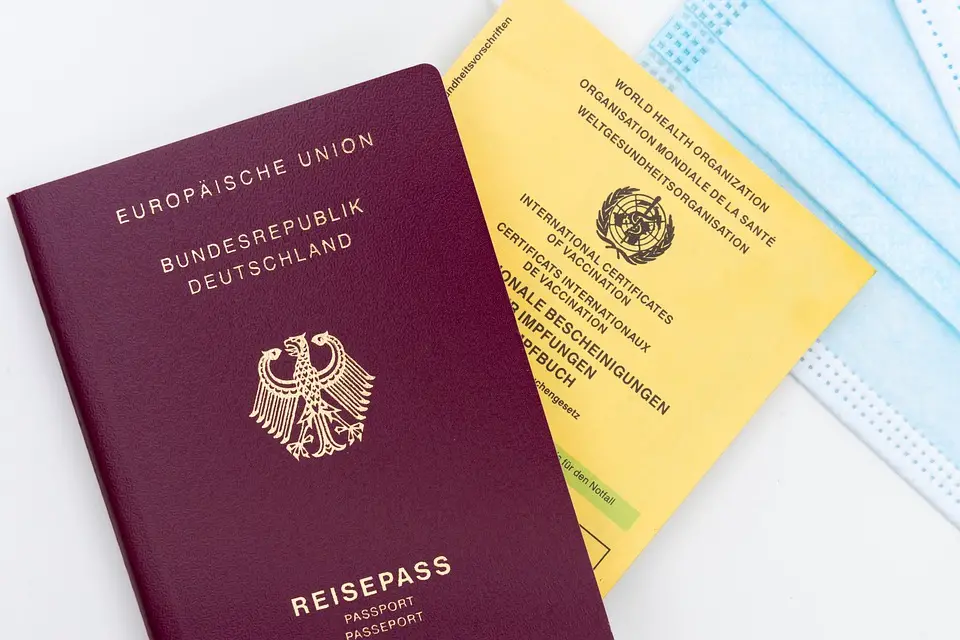As Poslovni Dnevnik/Darko Bicak writes, the EU green digital certificate won’t solve all of the now highly specific problems that are set to arise around the freedom of travel and protection against the ongoing coronavirus pandemic, but it will provide a model that will ensure the mobility of EU citizens and eliminate the current discrimination which goes against EU rules.
The above was the main conclusion drawn from the online conference “Digital Certificates and the COVID-19 virus” which was organised by the Office of the European Parliament in Croatia back at the end of last week.
Croatian MEP Valter Flego pointed out that last year showed us the chaos that can quite easily arise and this year we all need to try our best to avoid it happening again at all costs.
“It’s obvious that this Easter is also going to be a failure in terms of any sort of tourist season, and it’s certain that the opening up of the country will not take place even during the pre-season. We should already be engulfed in some serious preparations for the upcoming season, everything should be ready for the pre-season, including the hiring of seasonal workers.
Tourist staff would now be at various fairs and finishing off everything for this season and starting preparations for the next one. But there’s been none of that. Last week, the European Commission (EC) adopted a proposal for the introduction of the EU digital green certificate, but the fact is that due to bureaucratic and technical reasons, the move will only come to life in two to three months from now,” Flego warned.
He explained the importance of the EU digital green certificate through one simple example – if a family of four now wants to go from Germany on holiday to Croatia and return home, then they need to set aside 600 euros for testing, which is ridiculous and enough to put anyone off bothering going anywhere at all.
Analyses show, according to Flego, that the economic recovery from the coronavirus pandemic will be 10-12 times longer and more expensive than the situation following the 2009 economic crisis was.
“If coronavirus just disappeared right now at this moment, the question is how successful our recovery of the economy, and especially tourism, would be this year. Some people in Croatia say that this year we will be at 60 percent of the turnover of 2019. Personally, I’m not convinced of that and I really don’t know what such estimates are based on,” concluded Flego.
MEP Tomislav Sokol emphasised that this model of the EU digital green certificate, although compromises must still be reached and there will still be harmonisation to come in the Council and the Parliament, is certainly a great achievement in many fields. It will end discrimination against EU citizens with regard to which member states they come from and simplify and reduce the cost of their travel.
“The EC has given member states the right to decide on the details, from how and which tests they will accept, to the fact that each country can decide which vaccine to recognise as being valid – including those which aren’t registered in the EU, such as the Russian and Chinese vaccines.
However, it’s already a great achievement in itself that the certificates will be bilingual and machine-readable, which means that there will be no procedures and costs for translating and establishing their authenticity,” said Sokol.
He also pointed out that it is important that there will be no first or second class citizens and that there will be no restrictions on movement for any EU citizens. Sokol also referred to the issue that many EU member states are already looking at, or even seriously considering, using both Russian and Chinese vaccines, which haven’t been approved by the EU itself.
“The EC regulation on digital certificates states that each country can decide whether and under what conditions to accept those certificates and vaccines that have not received EU approval. In this particular case, this means that Croatia can accept certificates for, for example, Hungarian residents/citizens who have been vaccinated with the Russian or Chinese vaccine,” explained Sokol.
What about those who don’t want to be vaccinated?
Professor Iris Goldner Lang from the Faculty of Law in Zagreb pointed out that so far, we’ve had to get used to researching every day on how to enter and return from countries, because there were, and still are, vastly different measures which are changing almost daily. This new EU model solves all this through a “green certificate”.
“This sort of digital confirmation will take some time yet because today we have a situation where relatively few citizens have been vaccinated. In some cases, people refuse to be vaccinated for whatever reason, but more importantly, there are a large number of countries where vaccine distribution is still in its infancy.
From the perception of the EU legal system, the EU digital green certificate would be unacceptable at this point as it would lead to discrimination because very few people are currently vaccinated, for one reason or another. That’s why it’s still going to take some time for it to come to life,” said Goldner Lang. She added that even after vaccination is at a high level, there will be people who aren’t allowed or who don’t want to be vaccinated, and the way in which they can travel will have to be regulated.
The legal expert recalled that there have been certain vaccination rules and obligations in the world for many years to enter some countries – mostly African countries that insist on vaccination against, for example, yellow fever and some other infectious diseases.
For more on travel, borders rules, testing centres and other information on coronavirus specific to Croatia, bookmark this page.










